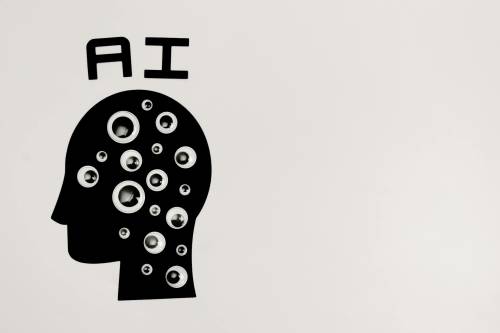

Who doesn’t love motivation? It can be flashy and cinematic, like the latest. It’s the music behind a breakthrough moment, the speech that launches a comeback, or the adrenaline rush that propels someone to pursue their dreams.
However, motivation is wildly overrated, especially for those with executive functioning challenges such as ADHD, Autism, and other forms of neurodivergence. If you are one of these persons with these issues, please find someone to help you with these challenges — don’t go it alone. Many in this world are willing to help you; find them.
Whether it’s starting a business, hitting the gym, writing that book, or just cleaning the garage, waiting to feel motivated will delay your progress. It’s a mood, not a method. And moods are unreliable.
To achieve meaningful goals, let’s examine why motivation so often fails, and what actually works in the long run.
The Problem with Motivation
Here are a few reasons motivation is a shaky foundation for long-term progress:
Motivation is fleeting.
According to Gráinne Fitzsimons, an experimental psychologist at Duke University’s Fuqua School of Business, motivation is often described as being flighty and fickle.
In other words, motivation feels like a sugar rush — intense but short-lived. For a moment, you feel invincible, then… a swift, inevitable crash. A podcast or documentary might fire you up for several days, but eventually the spark fades.
The reason? Motivation is an emotional high, not a concrete plan. And, you can’t build a lasting life on something so transient.
Motivation is circumstantial.
Often, motivation is triggered by external factors, such as a playlist, a sunny day, or a compliment. This makes it fragile. When life gets chaotic (which it always does), motivation goes out the window.
Whenever your mood shifts or life throws you a curveball, your productivity will collapse.
Motivation glorifies the beginning.
Motivation loves the start-line. It encourages people to join gyms, start journals, or download productivity apps. Unfortunately, it rarely reaches the messy middle, where the real work takes place. That’s when people give up. It wasn’t due to a lack of talent, but rather because they relied on something that was never built to last.
So What Actually Works?
People who achieve their goals don’t rely on fleeting emotions. Regardless of how they feel, they build systems, cultivate habits, and create environments that support consistent action. So, let’s examine what works.
Discipline > motivation.
This is the cornerstone. Having discipline means doing what needs to be done, regardless of how uncomfortable it may be. This means showing up, taking action, and working hard without making excuses or engaging in emotional debate. Motivation may ask, “Do I feel like doing this right now?” Discipline simply declares, “I’m gonna do this.”
Discipline doesn’t mean being rigid, robotic, or joyless. Instead, it means making fewer decisions in the moment. By consciously training yourself to act regardless of your mood, you eliminate the exhaustive emotional debate that drains your energy and willpower.
You don’t need to feel inspired to write 500 words. You’ll want to sit down, open your document, and write them. The inspiration, ironically, often arrives after you begin.
Systems reduce friction.
By reducing the need for willpower and brute-force motivation, a well-designed system is a powerful force. Automating the process makes the right choice the default option, making it easier and more complicated to quit.
- Do you want to eat healthier consistently? Create a system to prepare meals for the entire week on Sunday so healthy options are always readily available and impulse eating is reduced.
- Is it your goal to exercise more often? Prepare your workout clothes the night before, pack your gym bag, and schedule the exact time in your calendar.
- Are you looking for ways to save money? Set up an automatic transfer to your savings account.
Take a moment to ask yourself these critical questions:
- What can I do to make starting this desired action easier?
- By making my decision beforehand, can I remove it from the moment of action?
- To ensure I follow through, what can I do to build accountability (e.g., telling a friend, setting a public goal)?
As your strategic ally, systems ensure that the desired actions are taken.
Identity-based habits.
Rather than chasing fleeting goals, James Clear suggests cultivating habits that are anchored in your desired identity. As an example, you might say, “I want to write a book.” A statement of identity, however, says, “I am a writer.” One is a temporary goal, while the other shapes your behavior.
When you anchor habits to your identity, you don’t just act like a productive person or an early riser; you become that person by your consistent actions. When you perform the desired habit, you’re casting a tangible “vote” for the kind of person you want to become.
In other words, instead of waiting for inspiration to write, ask yourself, “What would a writer do right now?” You can then use this as a guide for your daily decisions.
Environment design.
Your immediate environment has a greater effect on you than you may think. If your surroundings are cluttered, distracting, or riddled with friction points, even the most substantial initial surge of motivation won’t be enough to sustain you. Depending on your environment, it can be an ally or a saboteur.
As such, design your environment to nudge you toward desired behaviors and discourage unwanted behaviors.
- Deep work. Keep your smartphone out of sight and out of reach during dedicated focus blocks. Also, unnecessary browser tabs should be closed.
- Healthy eating. Make healthy snacks easily accessible in your kitchen, and keep tempting junk food out of sight.
- Nighttime reflection/reading. As a clear cue for your evening routine, place your journal or a captivating book directly on your pillow.
- Consistent exercise. Set up a small, dedicated space for quick workouts or keep your running shoes by the door.
- Focused work. Keep your workspace clean, organized, and distraction-free. If your kitchen table is always full of activity, don’t try to work there.
There is immense power in your physical and digital environments. So, consider how you can design them to support rather than drain your discipline and progress.
Momentum from micro-wins.
You don’t need a burst of motivation to take action. All you need is a starting point. It only takes one tiny win to generate invaluable momentum that naturally leads to another and another.
That’s the power of the “just do five minutes” rule. Rather than cleaning your entire house, commit to just five minutes. Instead of writing a whole chapter, just open the document and write for five minutes. In many cases, the most challenging part of any task is just getting started. As soon as you’re moving, continuing feels more natural and more effortless than stopping.
By taking action, clarity is created. Not the other way around. After all, the path is often revealed as you walk it.
Track progress, not perfection.
Motivation often results in obsessing over immediate, visible, and big wins: the product, the house, the book. True, sustainable change, however, comes from consistent effort and progress, not flawless execution. Don’t think “flawless,” think “progress,” and soon you’ll be able to think, “done.”
- Track your habits. Use a bullet journal, an app, or a calendar to mark off each day you complete your habit. Visual chains of accomplishment are powerful motivators.
- Celebrate your streaks. Recognize and appreciate your consistency.
- Note your effort, not just your results. Focus on showing up and putting in the work, rather than “Did I achieve the perfect outcome?”
What happens when you miss a day? You don’t have to feel ashamed or remorseful. Just follow the “never miss twice” rule. Thanks again, James Clear, and get back on track immediately.
Purpose over hype.
Motivation loves external hype, as we have discussed — the pep talk, the inspiring montage, the short-lived excitement. Hype, however, burns out quickly. In the long run, purpose is what sustains effort.
Ask yourself these questions sincerely before embarking on any significant change or goal:
- Why does this truly matter to me? Is this a core value of mine?
- What’s genuinely at stake if I don’t commit to this change? Are there any costs associated with inaction?
- Who else benefits when I show up and follow through? What impact does my effort have on my family, my community, or my future?
Having a clear, deeply felt purpose creates immense emotional resilience. When fleeting moods and external motivation have abandoned you, it gives meaning to your efforts. It’s your internal compass and your inexhaustible source of energy.
The Bottom Line
Next time you’re waiting for motivation, stop. Develop the systems, habits, and environments that will allow you to act regardless. It takes more than a fleeting spark to make progress. Over time, it’s achieved by taking consistent, deliberate steps.
FAQs
Does this mean motivation is completely useless?
Not at all — it just isn’t enough. Motivation is a great spark, but it isn’t the engine. When motivation wanes, shift your focus to building habits and systems that will carry you forward.
How do I build discipline if I’ve always struggled with it?
People don’t just inherit discipline; they build it. You should start small. I mean really small. One push-up. Five minutes of focused work. The goal is to make it so easy that you can’t say no. Over time, you’ll build momentum and confidence if you pair that with a simple system.
What if I have a bad day and miss my habit? Does that ruin everything?
You can still make progress even if you miss a day. There is only one rule: never miss twice. It’s okay to slip once in a while. But two can form a pattern. It’s just a matter of resetting and showing up the next day. Showing up consistently, not perfectly, is the key to progress.
How do I find my real “why”?
Keep asking “why.” If you want to work out, ask why that matters. When the answer is “to feel healthier,” ask why that matters. Keep going until you find something deeply personal and emotional. That’s your purpose.
Can I apply these principles to any area of my life?
Yes. All of these principles, discipline, systems, habits based on identity, micro-wins, and environment design, apply to fitness, relationships, work, finances, and personal growth. Everything changes when you stop relying on motivation and instead rely on structure.
Image Credit: Andrea Piacquadio; Pexels











John Rampton
John’s goal in life is to make people’s lives much more productive. Upping productivity allows us to spend more time doing the things we enjoy most. John was recently recognized by Entrepreneur Magazine as being one of the top marketers in the World. John is co-founder of Calendar.